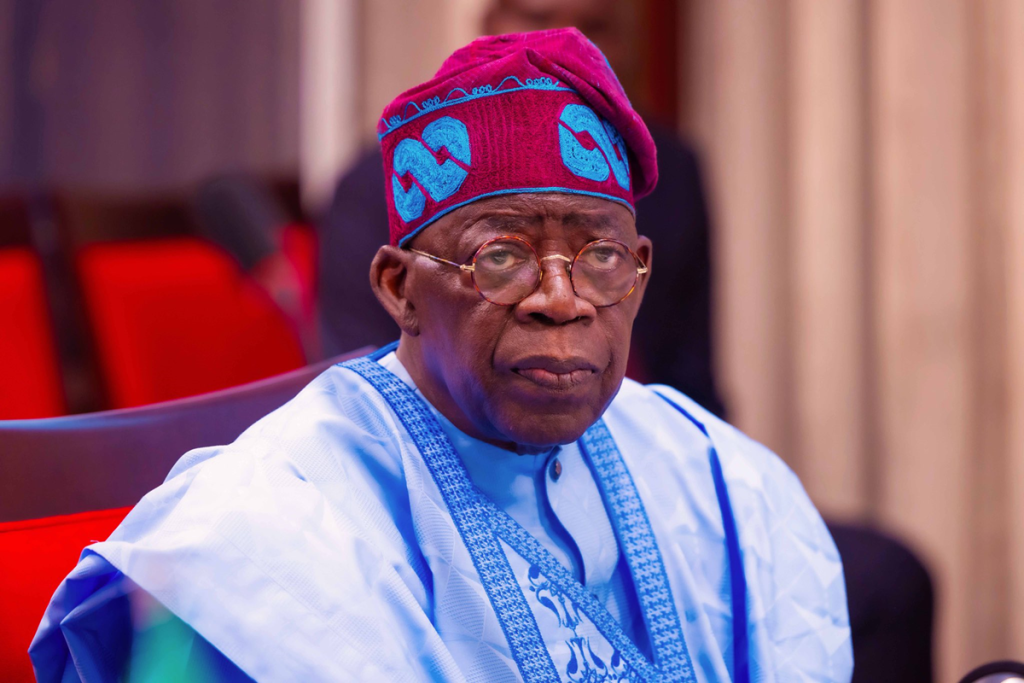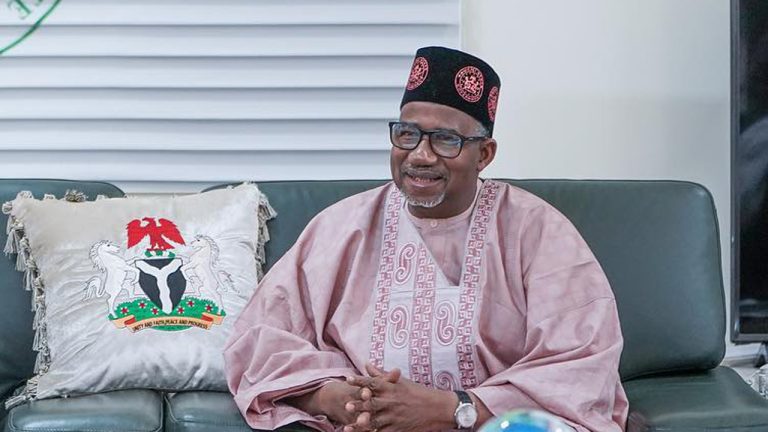The Governor of Bauchi State, Bala Mohammed, has been instructed by the Presidency to take back his warning against President Bola Tinubu regarding the tax reform bills.
Mohammed’s ultimatum was called “inflammatory” in a message posted on his X handle on Monday under the subject “RE: We’ll show Tinubu our True Colour” by Tinubu’s Special Adviser on Media and Public Communication, Sunday Dare.
In a statement, the governor claimed that President Tinubu was “calling for anarchy” if he proceeded with the tax reforms.
The comment was made by Governor Mohammed on Boxing Day in Bauchi while speaking to the Christian community.
In retaliation, he said the northern area would “show its true colours” if these practices persisted.
Mohammed further underlined that the reforms benefitted only one state in the federation and that they would cause economic repercussions.
He pleaded with the Nigerian government to change its mind and implement more inclusive measures.
“I implore him to take back these combative statements and refocus his attention on constructive dialogue with the Nigerian government regarding any concerns regarding the Tax Reform Act,” the Presidency stated.
Mohammed’s perspective does not represent the perspective of the entire north, according to the statement.
“This regrettable comment does not speak for Northern Nigeria as a whole. To address the issues facing our country, the North, like other areas, aspires to cooperative governance and positive interaction with the Nigerian government.
Instead of making threats, his efforts should be better spent putting into action programmes that effectively reduce poverty and making sure that these federal resources—N144 billion from the Nigerian government—are used transparently. The States gain a great deal from the Tax Reform Act and more federal funding.

“His claim that “we would expose President Tinubu’s true colour” is especially alarming and does not represent the productive communication that the Nigerian government and the state require.”It is noteworthy that under the current government, Bauchi State has received N144 billion (state and LGA) in federal allocations, which represents a substantial increase over prior payments.
“However, the state still faces significant obstacles to development and high rates of poverty. He is tasked with promoting national unity and demonstrating statesmanship in his capacity as a state governor,” Dare stated.
Subsequently, the Presidency clarified that the N144 billion federal allocation to Bauchi State represents one of the biggest increases in federal disbursements, giving the state sizable financial resources.
A recent N2 billion in special intervention money that was given to each state to improve food security was one example of this, it stated. Along with particular considerations for derivation monies meant to safeguard the interests of northern states, it also claimed that eliminating fuel subsidy compensation payments had greatly increased state revenues.
Dare claims that simplifying the various taxing structures will lessen the strain on Bauchi’s small enterprises.
“The reforms’ focus on supporting Bauchi’s farming communities is highlighted by improvements in revenue collection efficiency through digitalisation, protection for workers in the informal sector, who are the backbone of the state’s economy, and targeted provisions for agricultural businesses,” he added.
The presidency went on to say that these reforms provide frameworks to draw investments through tax incentives and increase the capacity of state revenue agencies, which offer avenues for development.
It claimed that the Nigerian government’s commitment to assisting state-level development is reflected in these measures.
To modernise Nigeria’s tax structure, President Tinubu presented tax reform bills to the National Assembly in October 2024.
The four bills—the Nigeria Revenue Service Establishment Bill, the Tax Administration Bill, the Nigeria Tax Bill 2024, and the Joint Revenue Board Establishment Bill—strive to improve revenue generation, simplify tax administration, and combine current tax legislation.
The Value Added Tax rate will rise from 7.5% to 10% by 2025, with additional increases anticipated, and telecommunications services will be subject to a 5% excise tax.
Dare emphasised that Governor Mohammed may leverage the advantages by putting in place transparent fiscal management systems, creating state-specific tax incentives to draw in investors, and making investments in agricultural value chains rather than rejecting these initiatives.
He maintained that rather than using divisive rhetoric, Nigeria’s route to prosperity required unity of purpose.
He called on public servants to embrace the shared vision of a more powerful and affluent country, putting aside regional views and political bluster.
“The issues we confront—from social development to economic growth, poverty to security—cut beyond national borders and political allegiances. It is true that all political leaders must enhance the lives of their constituents and that this can be done most effectively through productive discourse, effective resource management, and a steadfast dedication to maintaining national unity.
“The way forward is not conflict but cooperation, not threats but careful consideration, and most definitely not divisive rhetoric but a coordinated effort towards our common objectives of growth and advancement.
“This is the kind of leadership that Nigeria truly needs—one that puts the common good ahead of personal or regional interests and creates bridges rather than walls. Last but not least, this Hausa might calm the governor’s political nerves—”Gyara kayanka baya zama sauke mu raba.”


